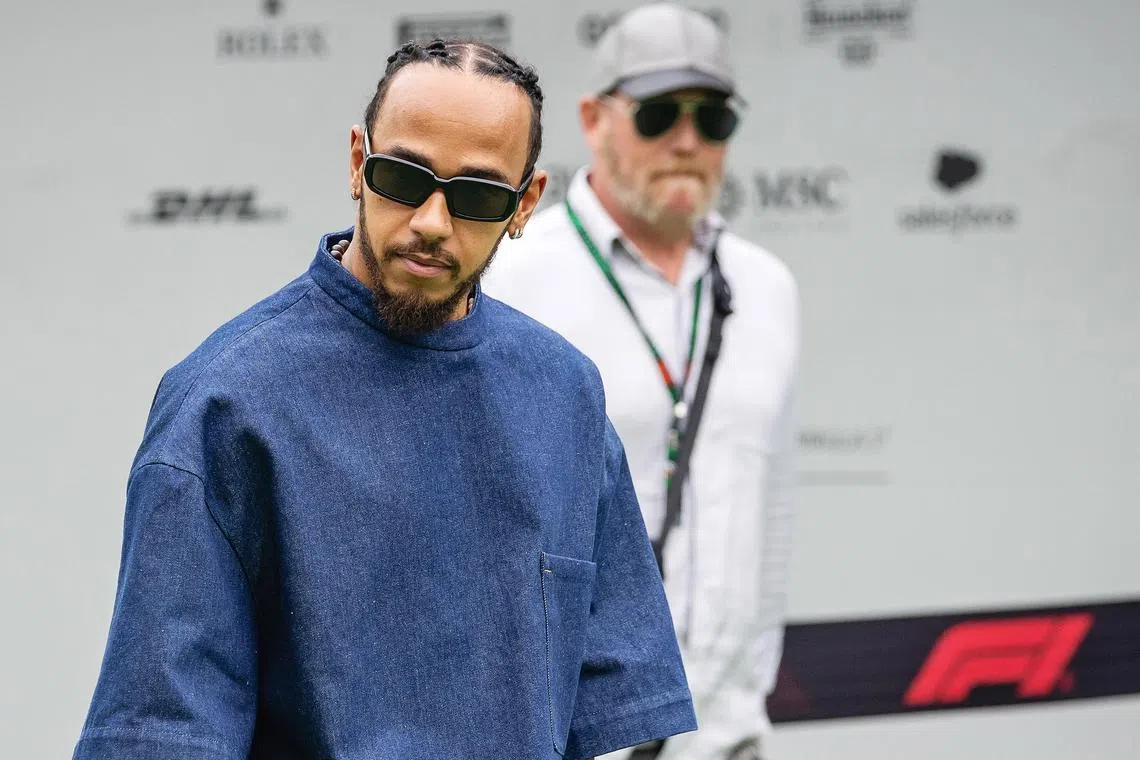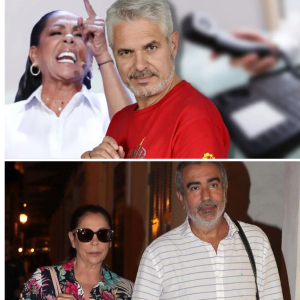LEWIS Hamilton has travelled to Singapore more times than he can remember, but incredibly the British Formula 1 (F1) superstar has never once set foot inside one of the city-state’s restaurants to enjoy a meal.
Like most of his fellow racers, he remains on the European timezone even though they are in Asia. This means waking up after noon, having breakfast at around 2 pm, hitting the gym and then going out on the tracks until midnight or so, before retiring to their hotel rooms at 1 am or 2 am after dinner.
“We see very little daylight (in Singapore), as we’re working all night long. Even when I’m back in my room, I don’t get to bed until about 6 am or even later. It’s a very strange experience, but it’s one that I genuinely enjoy,” said the 39-year-old Mercedes driver in an interview on Thursday (Sep 19).
The session was part of TeamViewer’s Experience Day event held at Paulaner Brauhaus in Millennia Walk, just a stone’s throw away from the Marina Bay street circuit.
Known for its remote access and control tools, TeamViewer is a global technology company based in Germany that is a partner of the Mercedes-AMG Petronas F1 Team.
Hamilton, a seven-time world champion who’s now in his 18th F1 season, will take part in what will be his 350th Grand Prix race in Singapore on Sunday. He currently occupies sixth spot in the drivers’ standings, having won two races this season – the British Grand Prix and the Belgian Grand Prix, both in July.
Ahead of the big day, the affable driver opens up about his love for the sport and what he does to stay cool in the gruelling conditions in the Lion City.
What inspired you to become an F1 driver?
As a kid, when I was about five, I would watch the races with my dad on the weekends. I just loved the cars and I was so inspired. I wanted to either be an astronaut, Superman or an F1 driver. I tried to be all of them, actually, but in the end I ended up at F1.
This season we’ve seen the emergence of some rookies like Oliver Bearman, Franco Colapinto and Kimi Antonelli. Looking back to when it was your turn, what’s it like to suddenly be in this spotlight?
I turned professional at 22, and these guys are turning pro at 18. I wasn’t ready when I was 18, but they are. It’s very intense and actually it’s a very lonely road when you’re a driver, no matter what age. You have to be very protective of your environment and space. Everything you do and say, every action and decision you take, whether it’s in the car or outside, is magnified and watched by millions of people.
I’ve made a lot of mistakes over the years, and I grew up in the public eye. It’s very difficult because no one tells you to be prepared for this or watch out for that. I took a long time to learn how to live in that sort of environment, and to work in a team with so many people, and with all our partners too. That was a huge learning curve.
Your F1 career is 18 years and counting, and there have been many changes with technology developments and the evolution of the cars. How have you adapted?
I’ve been racing for 31 years and that’s a long time. I started when I was eight, and became a professional at 22. I’ve just extended my career for longer (after signing a multi-year deal with Ferrari), which is kind of crazy. But I love what I do, and it’s important to follow your dreams. I’m very fortunate to be able to do what I enjoy.
Every season, we have around 2,000 people in our team and we get to work with all of them. There’s new tech all the time so we learn new tools, how to use them, and we go through vast amounts of data and analysis every week. The team helps to summarise the tonnes of data we’ve got from the last race.
We have to cope with back-to-back races over different tarmacs and different ambient temperatures. While we’ve been to Singapore many times before, every race weekend is unique. We don’t know if our cars will be competitive or not, and that’s what’s so exciting about this sport.
Inside your car, you have these screens showing the data, and the engineers are remotely feeding more data directly all the time. What are you looking out for?
We assess a huge amount of data. I’ll go out and do a lap, and there are a thousand sensors on the car and the data can show where you brake and turn, and all the bumps in every corner.
It shows the speed you’re at, the gear you’re taking, the temperature of the tyres and the engine, and so much more. We have all these buttons and controls on our steering wheel that we need to have set properly in order for us to deliver that perfect lap.
Back in the day when I was starting out, we didn’t have all of this and it’s been incredible to see the technology advance and continue to innovate. That’s why our sport is really the best. It’s the pinnacle of technology and innovation. Every year, so much is built in-house for our sport, and much of it gets to be used in the outside world too.
What are your thoughts on being back in Singapore?
It’s a night race, so we wake up at around 1 pm or 2 pm, then start our day and don’t go to bed until 6 am. Come to think of it, I’ve been coming to Singapore all these years and I’ve never once been to a restaurant because we’re out on the tracks the whole day.
I went to Gardens By the Bay one evening after the race, but other than that I’ve barely seen Singapore. We arrive on a Wednesday night, and then it’s straight to work the next day and staying in the European timezone. We see very little daylight as we’re working all night long. It’s a very strange experience, but it’s one that I genuinely enjoy.
How challenging is the Marina Bay circuit?
It’s a killer circuit. Everything is melting. The track is overheating, the cars too. The drivers use ice baths to cool down our core temperature. This is a track where we lose three to four kilos during the race, and we’re drinking lots of fluids over the weekend.
I weigh myself every morning because I have to watch my weight. It’s really important because 1 kilogram is worth 0.03 seconds per lap. I have to be a certain weight all through the season. I can’t be extra bulky and have all those muscles. This means I can’t have a beach body, even though i want to!
There’s a lot of training involved, as a driver. A lot of endurance training, a lot of running. I do 10 km to 15 km runs on most days. I’ve done two 10-km runs this week already. Then I’m in the gym to do work on my neck, because we’ve got hold our head up during the race for a long time.
They say when you lose a kilo, you also lose 10 per cent of your cognitive function. Is that true?
That’s why we train so hard to minimise that loss. And we also drink as much as possible. We have a (bag of water) in the car. It starts off as ice and by the time we leave the garage to start the race, it’s already (melted) and it’s like drinking hot tea.
Outside of racing, what do you do to unwind?
I love music, I travel with a suitcase that has a whole recording set with a foldable keyboard and a microphone that I link up to my laptop. I work remotely with an engineer in Los Angeles and we use TeamViewer software. He logs on and records me during the weekends (when I’m not competing) or during my evenings.






